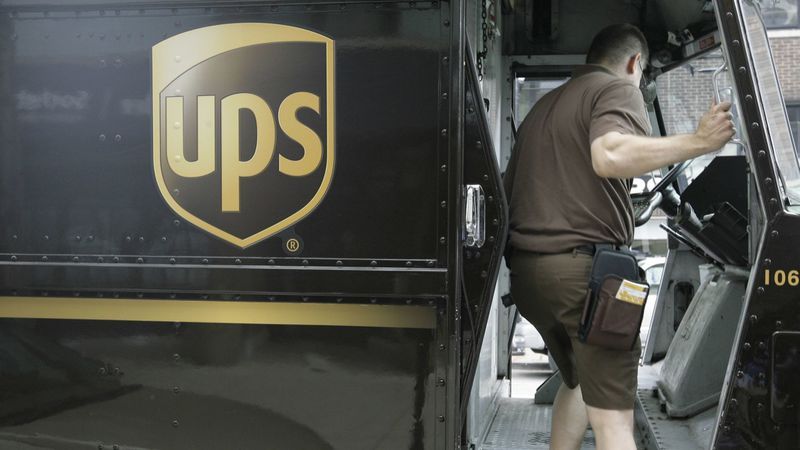Tech companies, UPS team up to examine delivery truck congestion problem
What’s causing Chicago’s worsening traffic mess?
Is it Uber and Lyft? The bike lanes? The seemingly endless rounds of street construction?
One factor cited by traffic experts is the increasing number of deliveries, as people order clothes, furniture and even groceries online.
To address the issue, the technology firms of City Tech Collaborative, HERE Technologies, Microsoft and Accenture, along with delivery giant UPS, have teamed up on a pilot to study delivery companies’ link to traffic congestion, and find possible solutions.
Based in Chicago, the study is expected to start in early October and take about four months.
For the first part of the study, HERE, a company that collects and analyzes traffic data, will work with UPS to find the places and times in which congestion is worsened by package delivery, or where delivery is more difficult and expensive due to congestion, said Finn Swingley, a HERE data scientist based in Chicago.
“We can tell where and when congestion is occurring, and we can see if congestion is exacerbated by trucks,” Swingley said. “We want to identify exactly the impacts of delivery vehicles.”
Swingley said the team also will look at possible options for easing congestion and making delivery easier.
Following the traffic data study will be a look at consumer preferences, said Brenna Berman, executive director of Chicago-based City Tech at UI Labs and the city’s former chief information officer. City Tech brought the different parties together to work on the problem and is managing the Civic User Testing Group to get residents’ feedback on possible changes to delivery schedules.
Testers will survey residents to measure their willingness to accept delivery changes, and the effect of potential incentives. Berman, recently named to a new city transportation task force, said the surveys will be done “old school, face to face” as well as online.
The study could find, for example, that noon deliveries are particularly congested, and researchers could see if this could be fixed by delivering packages earlier, later, on a different day or by bringing packages to an alternative location instead of to a customer’s home, Berman said. A better window for delivery may persuade customers to be more flexible about how they receive their packages, Berman explained.
“Perhaps getting (a package) to their home, a company can only commit to a two-day window, but getting it to a store, you can get it to a one-day window, and you are incented by that reliability,” Berman said. Data scientists can then create models looking at whether those changes can reduce city congestion.
Berman said research shows that in urban centers, about 30 percent of traffic can be attributed to deliveries, and that portion is likely going up because of the commitment by companies to faster delivery times. There’s also an increase in contracted delivery — instead of a UPS truck, you might get a delivery from someone driving his or her own car, she said.
The idea for the study came out of conversations between City Tech, tech firms, companies and government representatives, said Berman. Funding for the study comes from City Tech partners, Berman said.
“The good news, it doesn’t cost Chicago anything,” said Berman.
Read the article at the Chicago Tribune.
